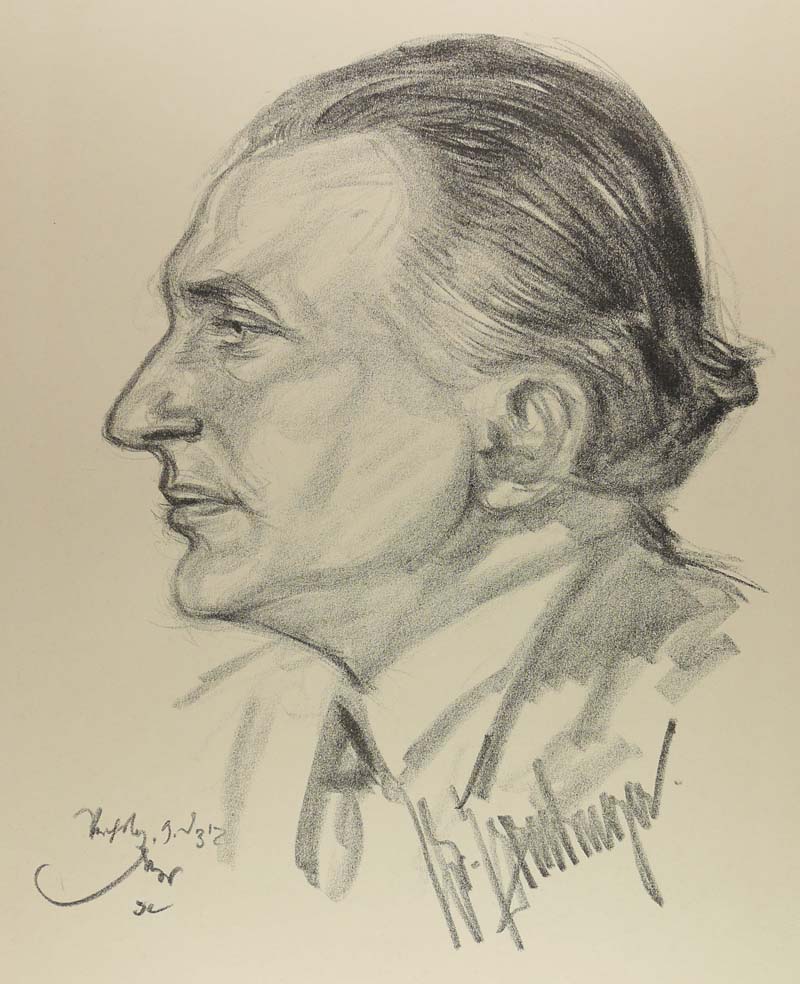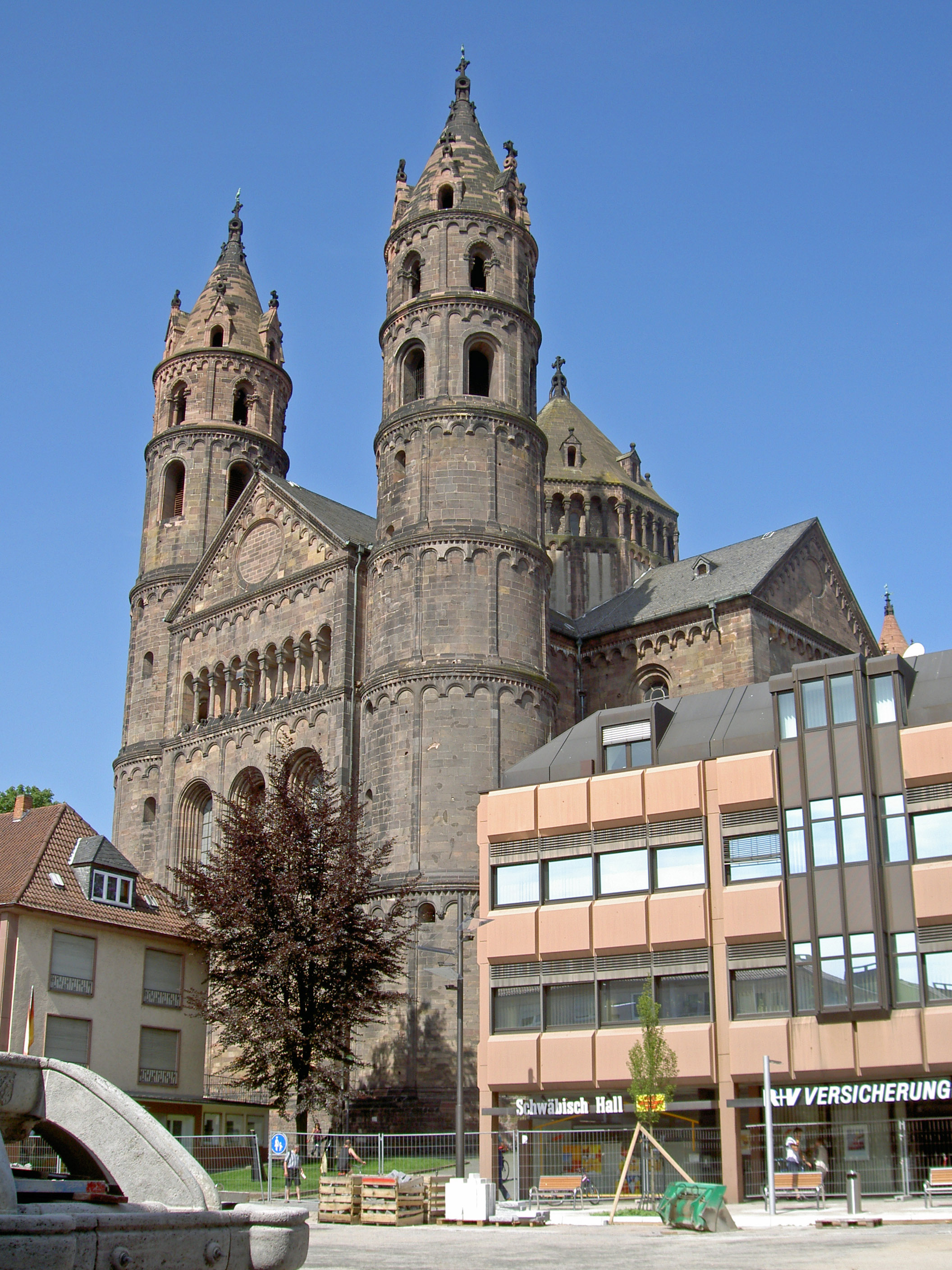|
Hans Staudinger
Hans Staudinger (born 16 August 1889 in Worms, Germany; died 25 February 1980 in New York City, NY) was a politician of the Social Democratic Party of Germany (SPD) and an economist, as well as a secretary of state in the Prussian trade ministry from 1929 to 1932. From November 1932 to June 1933 he was a Social Democrat member of the Reichstag. Youth Staudinger was born to the gymnasium (high school) teacher Franz Staudinger and his wife Auguste Staudinger, née Wenck, and was baptised as a Protestant. He had two brothers and one sister. His father was a leading theorist of the cooperative movement and was connected to prominent Social Democrats such as August Bebel and Eduard Bernstein. His friendship with the latter lasted his whole life. Hans Staudinger acquired his Abitur at the Ludwig-Georgs-Gymnasium in Darmstadt. He started an apprenticeship as a carpenter while still at school, but did not pursue this. He also temporarily worked as an engine stoker. The incentive for this ... [...More Info...] [...Related Items...] OR: [Wikipedia] [Google] [Baidu] |
Worms, Germany
Worms () is a city in Rhineland-Palatinate, Germany, situated on the Upper Rhine about south-southwest of Frankfurt am Main. It had about 82,000 inhabitants . A pre-Roman foundation, Worms is one of the oldest cities in northern Europe. It was the capital of the Kingdom of the Burgundians in the early fifth century, hence is the scene of the medieval legends referring to this period, notably the first part of the ''Nibelungenlied''. Worms has been a Roman Catholic bishopric since at least 614, and was an important palatinate of Charlemagne. Worms Cathedral is one of the imperial cathedrals and among the finest examples of Romanesque architecture in Germany. Worms prospered in the High Middle Ages as an imperial free city. Among more than a hundred imperial diets held at Worms, the Diet of 1521 (commonly known as ''the'' Diet of Worms) ended with the Edict of Worms, in which Martin Luther was declared a heretic. Worms is also one of the historical ShUM-cities as a cultural ... [...More Info...] [...Related Items...] OR: [Wikipedia] [Google] [Baidu] |
Middle Ages
In the history of Europe, the Middle Ages or medieval period lasted approximately from the late 5th to the late 15th centuries, similar to the post-classical period of global history. It began with the fall of the Western Roman Empire and transitioned into the Renaissance and the Age of Discovery. The Middle Ages is the middle period of the three traditional divisions of Western history: classical antiquity, the medieval period, and the modern period. The medieval period is itself subdivided into the Early, High, and Late Middle Ages. Population decline, counterurbanisation, the collapse of centralized authority, invasions, and mass migrations of tribes, which had begun in late antiquity, continued into the Early Middle Ages. The large-scale movements of the Migration Period, including various Germanic peoples, formed new kingdoms in what remained of the Western Roman Empire. In the 7th century, North Africa and the Middle East—most recently part of the Eastern Ro ... [...More Info...] [...Related Items...] OR: [Wikipedia] [Google] [Baidu] |
Theodor Haubach
Theodor Haubach (15 September 1896 in Frankfurt am Main – 23 January 1945 in Berlin) was a German journalist, SPD politician, and resistance fighter against the Nazi régime. Theodor Haubach spent his childhood and youth in Darmstadt. In 1914, right after his ''Abitur'', he took part in the First World War as a volunteer, and was wounded repeatedly. After the horror of his wartime experiences, Haubach resumed studying. From 1919 to 1923, he studied philosophy, sociology, and economics and eventually graduated. As of 1920, Haubach, like his friend Carlo Mierendorff, was an SPD member and worked together actively with the Young Socialists. From 1924 to 1929 he was editor of the newspaper ''Hamburger Echo'', and later (1929-1933) an associate at the Reich Interior Ministry and with the Berlin Police President. From 1924 Haubach was the leading member of the '' Reichsbanner Schwarz-Rot-Gold'', an association that campaigned fiercely for the Weimar democracy and actively struggled u ... [...More Info...] [...Related Items...] OR: [Wikipedia] [Google] [Baidu] |
Carlo Mierendorff
Carlo Mierendorff (24 March 1897 – 4 December 1943) was a German politician of the Social Democratic Party (SPD) during the Weimar Republic. An intellectual activist and regional politician in the People's State of Hesse, he played a major role in the propaganda of the SPD and the anti-fascist Iron Front during the last years of the republic. He was elected to the Reichstag in 1930. After the Nazi rise to power, he was arrested and spent several years in concentration camps before being released in 1938. He then helped organise the underground resistance to the Nazi regime until his death in December 1943 in an Allied air raid on Leipzig. Early life Mierendorff was born in Großenhain on 24 March 1897 to father Georg, who sold textiles, and mother Charlotte. His family was non-religious but of Lutheran background. He played violin and piano in his childhood and had a good relationship with both of his parents. His father held liberal political views and, after the family moved ... [...More Info...] [...Related Items...] OR: [Wikipedia] [Google] [Baidu] |
Deutsche Hochschule Für Politik
The Deutsche Hochschule für Politik (DHfP), or ''German Academy for Politics'', was a private academy in Berlin, founded in October 1920. It was integrated into the Faculty for Foreign Studies (''Auslandswissenschaftliche Fakultät'') of the Humboldt University of Berlin, Friedrich-Wilhelms-Universität in 1940, was re-founded in 1948 and turned into the Otto-Suhr-Institut of the Freie Universität Berlin in 1959. Purpose The DHfP was to establish the elementary principles of a democratic community in Germany in a liberal spirit and thus help to strengthen the young Weimar Republic against anti-democratic tendencies. Political science was at this time still understood as the study of democracy. The predecessor institution of the Deutsche Hochschule für Politik was the "Staatsbürgerschule" (Citizens' Academy) in Berlin, founded in 1918. Sponsors or members of the founding board of trustees were amongst others Walter Simons, Ernst Jäckh, Friedrich Naumann, Friedrich Meinecke, Max ... [...More Info...] [...Related Items...] OR: [Wikipedia] [Google] [Baidu] |
VEBA
VEBA AG (originally from ''Vereinigte Elektrizitäts und Bergwerks Aktiengesellschaft'' or "United Electricity and Mining Corporation") was a German state owned energy company. VEBA was founded in 1929 as a holding company owned by the state of Prussia, and was privatized in 1965. In December 1982, VEBA signed a cooperation agreement with the Petróleos de Venezuela (PDVSA) for the establishment of a Joint Venture A joint venture (JV) is a business entity created by two or more parties, generally characterized by shared ownership, shared returns and risks, and shared governance. Companies typically pursue joint ventures for one of four reasons: to acces ... Ruhr Oel GmbH. VEBA became a part of E.ON in 2000. External links * E.ON Defunct companies of Germany Electric power companies of Germany Companies based in Düsseldorf Energy companies established in 1929 1929 establishments in Germany Telecommunications companies established in 1929 {{energy-compa ... [...More Info...] [...Related Items...] OR: [Wikipedia] [Google] [Baidu] |
Preussag
TUI Group is a German leisure, travel and tourism company. TUI is an acronym for ''Touristik Union International'' ("Tourism Union International"). TUI AG was known as Preussag AG until 1997 when the company changed its activities from mining to tourism. It is headquartered in Hanover, Germany. It fully or partially owns several travel agencies, hotel chains, cruise lines and retail shops as well as five European airlines. The group owns the largest holiday aeroplane fleet in Europe and holds multiple European tour operators. It is trading as TUI AG jointly listed on the Frankfurt Stock Exchange and the London Stock Exchange as a constituent of the FTSE 250 Index. History The origins of the company lie in the industrial and transportation company Preussag AG, which was originally formed as a German mining company. It was incorporated on 9 October 1923, as ''Preußische Bergwerks- und Hütten-Aktiengesellschaft'' (Prussian Mine and Foundry Company). In 1927 it was merged with ... [...More Info...] [...Related Items...] OR: [Wikipedia] [Google] [Baidu] |
Franz Von Papen
Franz Joseph Hermann Michael Maria von Papen, Erbsälzer zu Werl und Neuwerk (; 29 October 18792 May 1969) was a German conservative politician, diplomat, Prussian nobleman and General Staff officer. He served as the chancellor of Germany in 1932, and then as the vice-chancellor under Adolf Hitler from 1933 to 1934. Born into a wealthy family of Westphalian Catholic aristocrats, Papen served in the Prussian Army from 1898 onward and was trained as a German General Staff officer. He served as military attaché in Mexico and the United States from 1913 to 1915, organising acts of sabotage in the United States and financing Mexican forces in the Mexican Revolution. After being expelled from the United States in 1915, he served as a battalion commander on the Western Front of World War I and finished his war service in the Middle Eastern theatre as a lieutenant colonel. Appointed chancellor in 1932 by President Paul von Hindenburg, Papen ruled by presidential decree. He ... [...More Info...] [...Related Items...] OR: [Wikipedia] [Google] [Baidu] |
Otto Braun
Otto Braun (28 January 1872 – 15 December 1955) was a politician of the Social Democratic Party of Germany (SPD) during the Weimar Republic. From 1920 to 1932, with only two brief interruptions, Braun was Minister President of the Free State of Prussia. The continuity of personnel in high office resulted in a largely stable government in Prussia, in contrast to the sometimes turbulent politics of the Reich. During his term of office, Prussia's public administration was reorganized along democratic lines. He replaced many monarchist officials with supporters of the Weimar Republic, strengthened and democratized the Prussian police, and made attempts to fight the rise of the Nazi Party. On 20 July 1932, in the Prussian coup d'état (), Reich Chancellor Franz von Papen ousted Braun's government from power following its loss of a parliamentary majority to the Nazis and the Communist Party of Germany. After Adolf Hitler seized power at the end of January 1933, Prussia lost its dem ... [...More Info...] [...Related Items...] OR: [Wikipedia] [Google] [Baidu] |
Rudolf Wissell
Rudolf Wissell (8 March 1869 – 13 December 1962) was a German politician in the Social Democratic Party of Germany (SPD). During the Weimar Republic, he held office as the Minister for Economic Affairs and Minister for Labour. Early life Rudolf Wissell was born on 8 March 1869 in Göttingen, in the Prussian Province of Hanover. His father was Ludwig Wissel, a helmsman, his mother was Ulrike, née Klimmet. He went to school in Bremen from 1876-83. In 1883, he started an apprenticeship as a mechanical engineer. Finishing in 1887, Wissell started to work at a machine builder in Bremen.). In 1888, Wissel became a member of the (still illegal) SPD and chairman of the ''Fachverein der Schlosser und Maschinenbauer'' (a union). In 1890, he brought the ''Fachverein'' into the newly founded ''Deutscher Metallarbeiter-Verband''. From 1891-3, he served in a Prussian Grenadier regiment stationed in Posen. Following military service, Wissell worked as a lathe operator at Kiel a ... [...More Info...] [...Related Items...] OR: [Wikipedia] [Google] [Baidu] |





